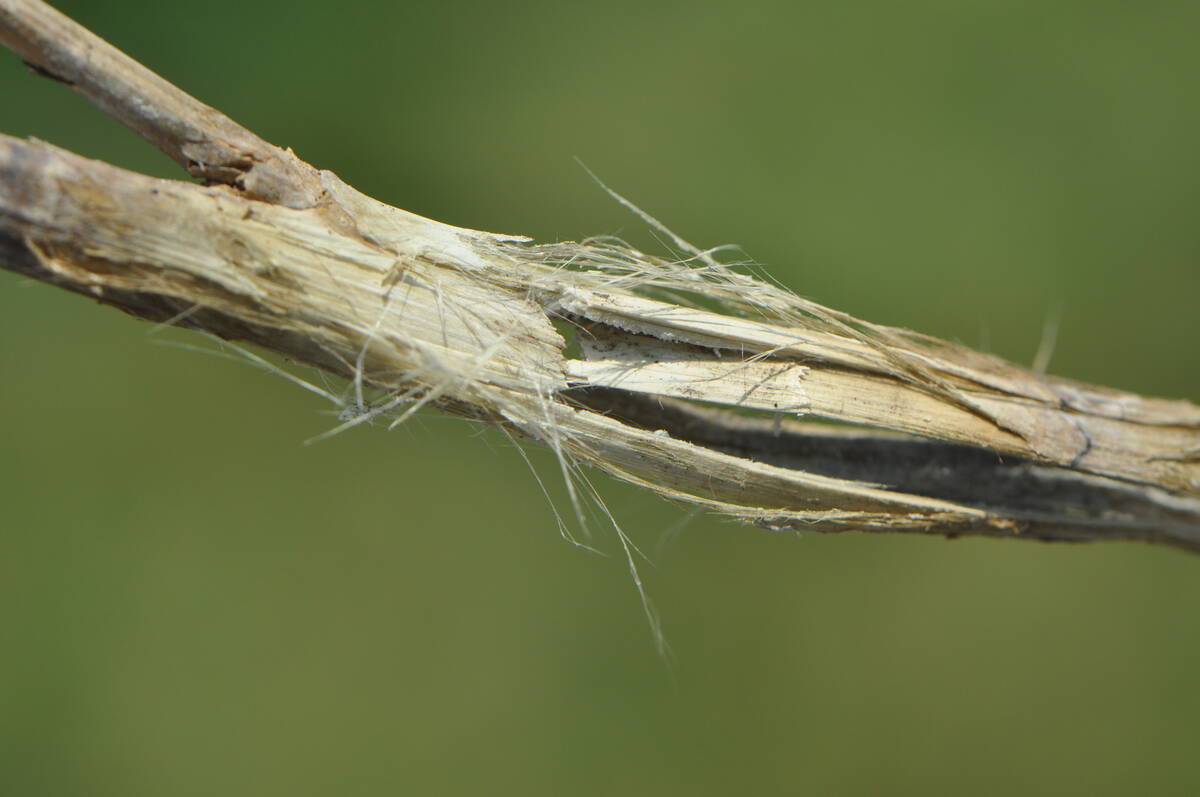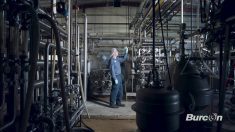A U.S. grain-processing firm plans to set itself up in the Prairie flax ingredients business over the wreck of a previous player’s Manitoba plant, and will bring back the plant’s founding family to help run it.
Minnesota-based Grain Millers, Inc. on Thursday announced the launch of SafeFlax, a new line of flaxseed products, to be made at one of its plants in Indiana and at a new site at Angusville, Man., the hometown of the Glanbia Nutritionals flax plant destroyed by fire last spring.
Read Also

Manitoba sclerotinia picture mixed for 2025
Variations in weather and crop development in this year’s Manitoba canola fields make blanket sclerotinia outlooks hard to pin down
Grain Millers also announced March 7 it has hired the Glanbia plant’s original founders, Linda and Glenn Pizzey, to serve as “strategic partners to its industry-leading flax team.”
The Pizzeys had owned and operated the flax ingredients plant at Angusville, about 330 km northwest of Winnipeg, under the name Pizzey’s Milling until they sold the company to the U.S. wing of Irish food-processing firm Glanbia in 2007.
The Pizzeys are to be involved with “all aspects” of Grain Millers’ existing flax business, including processing, product development and technical services, the Minneapolis-area company said.
The SafeFlax product line of flaxseed products is billed as undergoing Grain Millers’ proprietary heat-stabilization and pasteurization treatment, “created specifically to mitigate the risk of contamination while minimizing stress on the flax product, a seed notoriously difficult to process.”
“The SafeFlax process allows us to optimize the processing parameters for different products,” Linda Pizzey said in the company’s release. “Without this feature, you might eliminate pathogens, but you won’t adequately maintain the stability of the natural lipids and other nutritional and functional components in flax.”
SafeFlax products are to include SafeBake and SafeBev for the baking, cereal and beverage markets, and will also be used in various other mixes Grain Millers now sells.
SafeFlax is to be made both at Angusville and at Grain Millers’ Agricor dry corn-milling plant, which makes cornmeal, grits and corn flour at Marion, Indiana, about 80 km north of Indianapolis.
Both sites are expected to be processing flax by May, Grain Millers said.
Reinvigorate
Grain Millers, which last year also bought the Enreco flax-milling business and plant at Newton, Wisconsin, about 160 km northwest of Madison, said the Angusville and Marion plants will help create “one of the largest footprints of any food flax processor in the world.”
“Having three facilities capable of making whole and milled flaxseed products will be a critical benefit to our customers,” Grain Millers president Steve Eilertson said in the company’s release. “It not only ensures our customers will benefit from the most efficient distribution, but also guarantees they will never face the production disruptions that have become commonplace in the flax industry.”
Grain Millers’ only other Canadian operation so far is its oat-processing plant at Yorkton, Sask., one of the company’s three North American grain mills, making products such as rolled oats, instant oatmeal and oat bran.
Eilertson hailed the Pizzeys as “legends in the flax business,” saying the flax industry “hasn’t made any significant progress since the Pizzeys left” and the couple’s “passion for flax and their understanding of its nutritional and functional benefits are unmatched.”
The company, Eilertson said, is “thrilled to be working with them to reinvigorate the category and put focus toward helping people understand just how powerful a food flax can be.”
The company’s “advanced understanding of flax processing was one of the things that interested us most in this partnership,” Linda Pizzey added.
Glanbia announced in November it wouldn’t rebuild at Angusville after the March 2012 fire, instead moving its flax operations to a new U.S. cereal ingredient-processing plant at Sioux Falls, S.D., expected to be open in July this year.
The Manitoba fire commissioner’s office ruled the $7-million Angusville fire appeared to be caused by flax meal overheating in a pasteurizing unit.



















